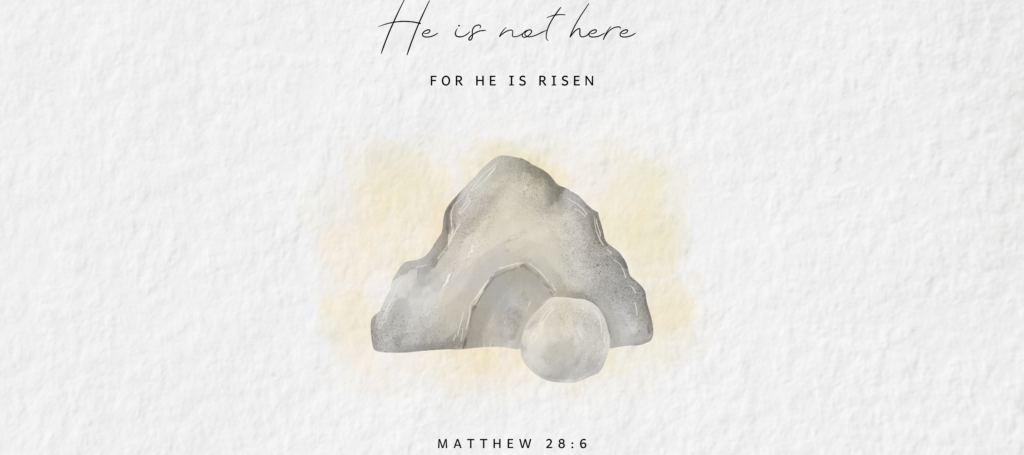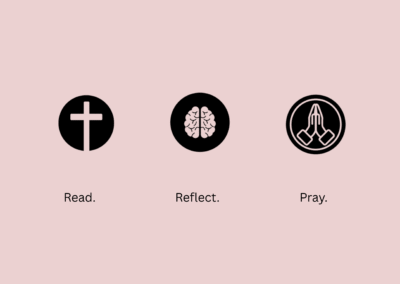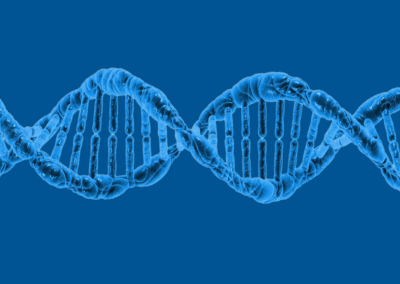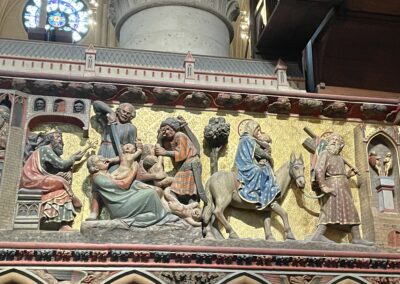
At Easter, in the liturgical traditions, we prayerfully enter into the drama of the cross
in the context of Israel’s history, and we let it do its work on us. This work is often
counterintuitive and independent of any particular theory of how the cross works.
At one level, we follow the betrayal and death of a man two thousand years ago, in a
brutal regime that terrorised much of the known world; the life of a man who lived
only 33 years. But this was a man who was known to have died and then risen
again—not quite in a body like ours, but not a ghost either. Only because of the
testimony to his rising do we notice him at all, name ourselves Christians, and call
upon the same spirit that raised him to also raise us and inform us of the life of God
and the inwardness of all things.
In the secular world, it makes no sense to rehearse the death of a man who lived in
an ancient city so long ago, before humans reached all corners of the earth, before
the Reformation, before the modern world, before industrialisation, and before
science as we know it. It makes no sense to discuss life beyond death. This
perspective may appear nonsensical to a secular world, yet it is not inconsistent with
science. Secularism and science are not the same thing. Secularism has many
definitions, but at its core, it is a way of thinking that obscures and ignores all that
falls under the heading of the spiritual or relegates the spiritual to a lesser category
than the physical and observable. Science, on the other hand, is concerned with all
that is real and prominently includes orders of being that are essentially invisible,
almost infinitely far away, or infinitely small, and which adhere to laws that, while only
partially understood, are unintuitive and remarkable. The boundaries of the
observable continue to expand. A life of science can prime us to respond to God and
the story of the death and rising of Christ.
But science acts on us and informs us in complex ways. Our understanding of the
Trinity is often subtly influenced by a mechanical reductionistic form of science or
scientism. There is a pervasive view of the world as a huge machine that has been
built up by a superficial view of science and of simple causation, that influences our
theories and views of everything including theology. Science, for instance, has
overwhelmingly provided us with a view of the world through the lens of causation,
specifically of a Euclidean/Newtonian nature. Even God is seen as a First Cause.
Many theories of atonement are grounded in causation. For instance, God the Father
caused the Son to die so that God’s honour could be reclaimed, or God the Father
achieved victory over the devil.
But what if we and God resembled the mysterious workings of quantum mechanics,
sometimes manifesting as one thing (a wave) and at times as something else ( a
particle)? What if our connection with Christ was more akin to entanglement, where
having once been linked ( in baptism and the Incarnation), we are now forever
intertwined—at a distance? What if, just as energy and matter are interchangeable at
subatomic levels, appearing and disappearing, God and we are also engaged in a
subtle interchange of energy? What if this energy is the costly love at the heart of the
universe. This is the universe that is also strangely turned away from God, and in the
shadow of that turning, we too suffer and, along with the world, contribute to that
suffering. There is a coming and going, a turning and affirming, a presence and
absence, that signifies a drawing into the life of God through Christ and by the power
of the Spirit. Easter speaks to the infinite cost of our collective moral error. Perhaps
that resonates in this day and age. Only something “costing not less than everything”
can make all things right. (Out of the Silence, Jim Cotter, 2006)
We must, though, return again to the man Christ, for Easter is about the scandal of a
particular man who died and rose again. Science alone, neither in its subtle forms
and in its reductionist ones, can get us to Christ. We need also to experience the
impact of Christ through the Spirit—who is nevertheless also the one in whom all
things hang together. There are mysterious aspects to the Incarnation, but they
include the idea of union with Christ–he is the vine; we are the branches, together
with an exchange of spiritual energy so that Christ’s fate and ours are somehow
linked, both the agony, the suffering and the resurrection and new life. In Christ there
is a sober view of suffering as a continuation of the life of Christ, but a life that is
always anticipating a life that comes out of death. To be a Christian is to be open to
the world and to possibility and to yearn for that which is not yet, but is discerned in
the fabric of the universe, in signals and signs from the present life; signals and signs
that speak of eternity.
To be made of matter is to die, but our hearts carry the burden of eternity. For this
reason, our failures are so costly because there is rarely the time and energy to
repair what is broken. Our spirits touch the Spirit of God, and we are sometimes
aware of the presence of angels. We sense levels of existence in and around us. We
love within matter as our only known home, but we also acknowledge that we have
another home, and that Jesus, who has returned to the Father, will take us there with
him in the fullness of time. However, our work now in this world—and our deep
investigation of it— is given inestimable value by the life of Christ. Whatever
salvation means, it is not just waving a magic wand; it necessitates a costly
incarnation and bearing all the joys, fears, grief, love and temptations of being alive
in the stuff of matter. It involves bearing the weight of the fear and longing of the
world. This is the world we discover and partially create through scientific endeavour.
And science, at its depths, models the subtlety and complexity and, ultimately, the
inexhaustibility of the spiritual. As Werner Heisenberg said, “The first gulp from the
glass of natural sciences will turn you into an atheist, but at the bottom of the glass,
God is waiting for you.”
May we all experience the joys of Easter and the experience of the waiting God.



